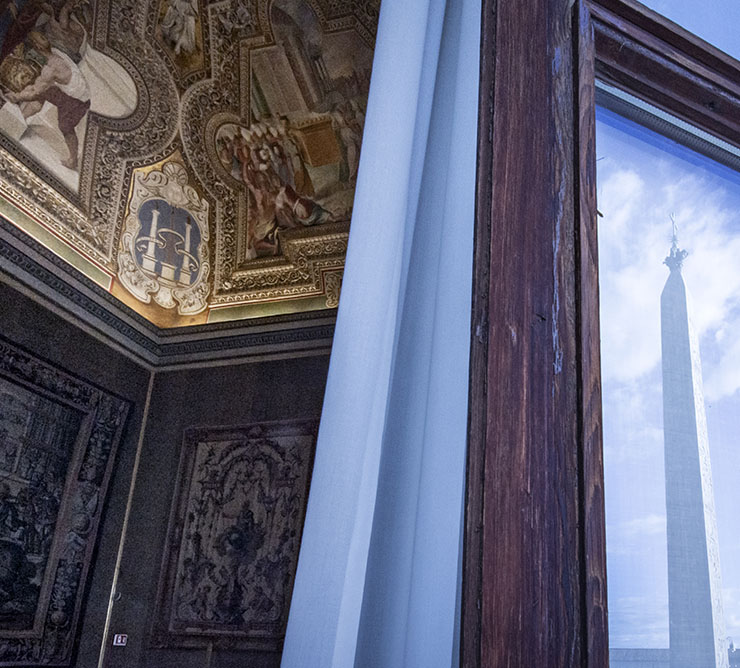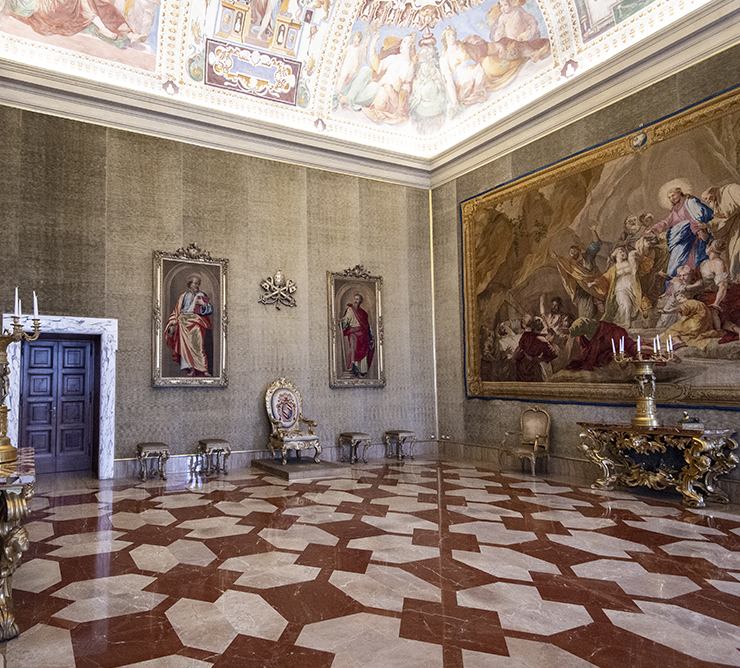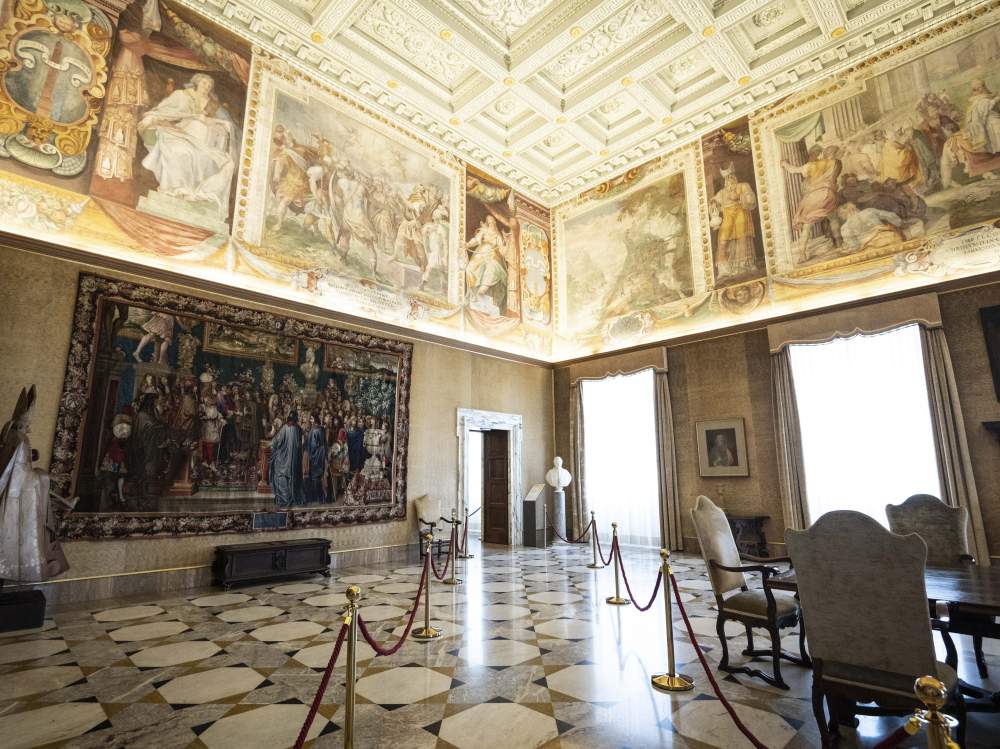In one of the historic districts of the city, adjacent to St. John Lateran Basilica, the "Mater et Caput" of all the churches of Rome and the world, stands the Lateran Palace, the papal seat and official residence of the Popes for many centuries.
Damaged several times over the centuries, by earthquakes, raids and invasions, and punctually restored, it was devastated by a fire in 1308: thus, upon the return of the papacy to Rome in 1377 after the ‘Avignon exile’, the popes fixed their residence at the Vatican. Although it is no longer inhabited, it will continue to keep intact its prerogative of Patriarchium, that is the House of the Bishop of Rome, in fact, all the popes elected to the throne of Peter have always celebrated their taking of possession in St. John Lateran Basilica
It is possible to access the site from Piazza di Porta San Giovanni, right next to the entrance of the Basilica, in small groups, accompanied by the wise guide of the Missionaries of Divine Revelation
At the end of the guided tour you can get to know the beauties of St. John Lateran Basilica and the Cloister. The Lateran Complex includes several places of great interest: the Basilica with its Cloister, the Baptistery and the Holy Stairs which encloses the Papal Chapel of the Sancta Sanctorum.
With just one ticket you can visit the Papal Apartments of the Lateran Palace and at the end of the visit you can visit the Cloister and St. John Lateran Basilica.
Lateran Palace guided Tour
To visit the Lateran Palace it will be necessary to show up at least 15 minutes before the booking time and show the QR code directly at the entrance, Piazza San Giovanni in Laterano, next to the main entrance of St. John Lateran Basilica
Entrance and audio guide for St. John Lateran Basilica and Cloister

The vault of this room is adorned with frescoes by Giovanni Guerra and Cesare Nebbia. They narrate episodes from the life of King Solomon, the wise builder of the Temple of Jerusalem.

Always used as a Throne Room, this room takes its name from the pictorial representations of the vault, where in the center we find the allegory of the Glory, depicted as a winged woman who supports the heraldic mountains of Pope Sixtus V with her right hand and in the left a palm tree. All around are painted personifications of the Four Seasons, recognizable by the relative products of the earth.

The ceiling of this room, redesigned in the nineteenth century based on a design by the architect Poletti, also bears a frescoed frieze on the upper part of the walls, depicting episodes from the life of Emperor Constantine the Great, whose conversion is due to the transformation of Christianity in "state religion".